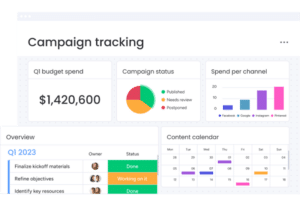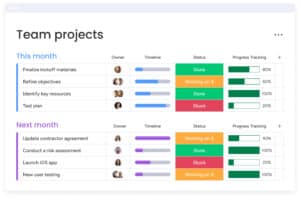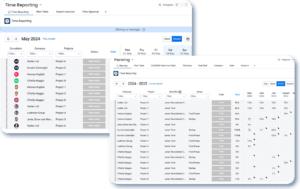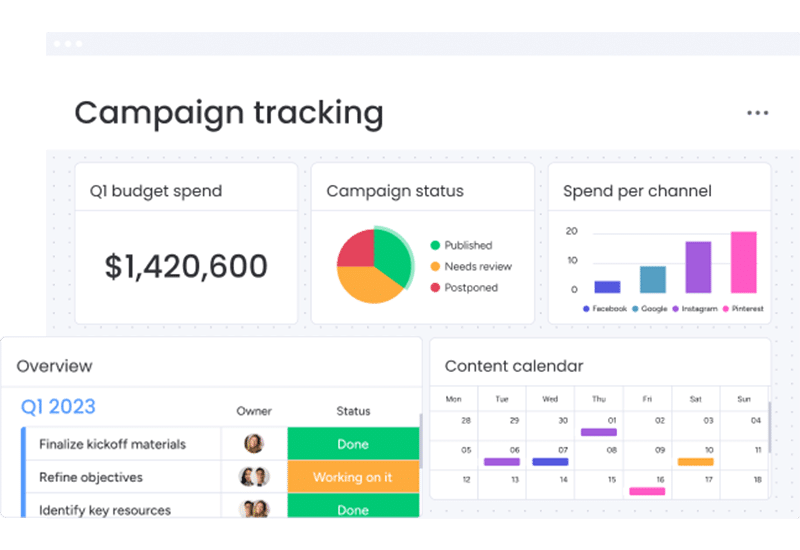Introduction
In the rapidly evolving business world, the mantra “know your customer” has taken on a new dimension. Leveraging CRM data analytics for personalised sales strategies has become a game-changer. It enables companies to shift from generalized tactics to highly focused, individualized approaches. As the digital marketplace burgeons with empowered consumers seeking tailored experiences, businesses that understand and capitalize on CRM data analytics are poised to thrive.
The Rise of Personalisation in Sales
The digital age, replete with myriad choices, has heightened consumer expectations. Today’s consumers yearn for brands that recognize and cater to their unique needs and preferences. They’re no longer satisfied with generic interactions. By leveraging CRM data analytics for personalised sales strategies, businesses can meet these expectations. As a result, this will also foster deeper connections, engendering trust and cultivating long-term loyalty.
The Relevance of CRM Data Analytics
Customer Relationship Management (CRM) systems have always been treasure troves of customer information. But it’s the advanced data analytics that has metamorphosed these systems from simple data storage hubs to potent predictive tools. Leveraging CRM data analytics for personalised sales strategies means diving deep into customer insights, anticipating market trends, and finely tailoring offerings to resonate on a personal level. In essence, the future of sales hinges on not just gathering data but astutely analyzing and acting upon it to craft unparalleled customer journeys.
What is CRM Data Analytics?
In the quest for competitive advantage, businesses are constantly exploring avenues to refine their operations and engagement strategies. One significant frontier in this journey is CRM data analytics. But what exactly does this entail, and how does leveraging CRM data analytics for personalised sales strategies differentiate businesses in the marketplace?
Defining CRM and Data Analytics
At its core, CRM is about understanding and managing a company’s interactions with its customers. It captures a myriad of information ranging from contact details, purchase histories, feedback, and more. Data analytics, on the other hand, involves the systematic computational analysis of this data. It’s about extracting meaningful insights from vast amounts of information to inform decision-making. When combined, CRM data analytics is a powerful tool, offering a comprehensive view of customers’ behaviour, preferences, and potential future actions.
The Evolution from Traditional CRM to Data-Driven CRM
Traditional CRM systems served primarily as contact management tools, logging interactions and storing basic customer information. Today, however, businesses are leveraging CRM data analytics for personalised sales strategies. They’ve evolved from mere record-keeping to predictive and prescriptive analysis. This transformation empowers businesses to not only understand what their customers have done but to predict what they might do next, enabling the creation of highly tailored strategies that resonate on a personal level.
Why is Personalisation Important in Sales?
Whether engaging individual consumers or large corporations, sales success hinges on relationship-building. In our contemporary business environment, with rising expectations across both B2C and B2B landscapes, personalisation emerges as a linchpin. Why has tailoring experiences become so crucial, and how does leveraging CRM data analytics for personalised sales strategies magnify its impact across both domains?
Personalisation as a Key Differentiator in B2C and B2B
In the B2C world, consumers gravitate towards brands that resonate on a personal level, that acknowledge their unique needs and preferences. Meanwhile, in the B2B sector, businesses seek partners that can comprehend their specific challenges, industry nuances, and strategic objectives. Personalisation is no longer a mere value-add; it’s an imperative. By leveraging CRM data analytics for personalised sales strategies, companies can delve deep into individual consumer preferences and the intricate needs of business clients, ensuring tailored, impactful interactions across the board.
The Tangible Benefits of Personalised Sales in Both Arenas
For consumers, personalisation means feeling valued and seen. They’re more likely to convert, repurchase, and advocate for brands that treat them as more than just a transaction. In the B2B space, a personalised approach translates to understanding and addressing specific industry pain points. This leads to longer contract durations and fortified business relationships. Harnessing CRM data analytics for these personalised strategies allows both B2C and B2B enterprises to anticipate and cater to future needs proactively, optimizing resources and maximizing ROI in the process.
Omnitas Newsletter
Sign up for our monthly newsletter to stay up-to-date on our latest blog articles, videos and events!
Thank you!
You have successfully joined our subscriber list.
How CRM Data Analytics Fuels Personalisation
CRM data analytics doesn’t just refine sales strategies—it revolutionizes them. By unearthing deep insights from customer and business partner data, companies can craft tailored experiences that resonate in both B2C and B2B spheres. So, how exactly is leveraging CRM data analytics for personalised sales strategies transforming the sales landscape across these different sectors?
Capturing and Analyzing Multi-faceted Data
In the B2C arena, CRM systems store a wealth of information, from buying habits and browsing history to feedback and preferences. For B2B interactions, CRM data encompasses details about contract histories, business pain points, industry trends, and communication cadences. By leveraging CRM data analytics for personalised sales strategies, businesses can dissect this intricate data. Which in turn will reveal patterns and insights that drive tailored strategies for both individual consumers and enterprise clients.
Predicting Behavior and Preferences in B2C and B2B
For consumers, past behaviour can often predict future actions. CRM data analytics enables businesses to anticipate what a customer might want or need next, enhancing the shopping experience. In the B2B sector, understanding a company’s past challenges, projects, and interactions can provide invaluable insights into their future requirements and potential areas of collaboration. Thus, CRM data analytics not only facilitates reactive strategies but empowers companies to proactively shape their offerings. Whether it’s a product recommendation for a consumer or a tailored solution for a business partner.
Segmenting and Targeting for Precise Engagement
In the crowded B2C market, segmenting consumers based on behaviour, preferences, and demographics allows businesses to craft targeted marketing campaigns that resonate on a personal level. On the B2B front, segmenting businesses based on industry, size, or past interactions can help tailor communication, offers, and solutions that address specific pain points. Leveraging CRM data analytics for personalised sales strategies ensures that interactions, whether with individual consumers or business entities, are relevant, timely, and impactful.
Practical Steps to Leverage CRM Data for Personalised Sales Strategies
As businesses increasingly recognize the value of personalisation across both B2C and B2B landscapes, the need for actionable steps to harness CRM data becomes paramount. But how does one go about leveraging CRM data analytics for personalised sales strategies in these distinct sectors? Here’s a roadmap to guide both B2C businesses and B2B enterprises.
Data Collection and Integration
- B2C Focus: Begin by consolidating data points from various customer touchpoints, be it online shopping behaviours, social media interactions, or feedback forms. Use tools to track and capture real-time data for more timely personalisation.
- B2B Emphasis: Collate information from previous business transactions, communication logs, industry reports, and feedback from business partners. Ensure your CRM system can integrate with other business tools, like ERP or supply chain management systems, to get a holistic view of the partnership.
Data Analysis and Insights Generation
- B2C Focus: Use analytics tools to spot consumer behaviour trends, segment your audience based on shared characteristics, and predict future buying behaviours.
- B2B Emphasis: Analyze the business cycle, identify common pain points across similar industries, and track communication patterns to better anticipate business needs and tailor your outreach.
Personalised Engagement Strategies
- B2C Focus: Design targeted marketing campaigns based on customer segments. Consider implementing recommendation systems that offer products based on past purchasing history.
- B2B Emphasis: Develop bespoke solutions tailored to industry-specific challenges. Consider crafting personalized content that addresses niche concerns or offers insights into industry trends.
Continuous Feedback Loop and Optimization
- B2C Focus: Actively solicit feedback from consumers and use it to refine your strategies. Implement A/B testing on campaigns to discern what resonates most with your audience.
- B2B Emphasis: Maintain regular communication with business partners to gather feedback. Use this input to refine your solutions and ensure they’re continuously aligned with evolving business needs.

Challenges in Implementing CRM Data Analytics for Personalisation
Despite the evident potential of leveraging CRM data analytics for personalised sales strategies, both B2C businesses and B2B enterprises face hurdles in execution. Let’s delve into the common challenges in harnessing CRM data across these distinct sectors and how they can be navigated.
Data Silos and Integration Issues
- B2C Focus: In the B2C realm, customer data can often be scattered across various platforms, from e-commerce sites to social media channels. Integrating this fragmented data into a coherent view can be daunting, making it challenging to derive actionable insights.
- B2B Emphasis: B2B companies frequently deal with complex organizational structures, multiple stakeholders, and varied data sources, such as ERP systems, project management tools, and communication logs. Integrating these diverse data points into a unified CRM can be a substantial challenge.
Ensuring Data Quality and Accuracy
- B2C Focus: Incorrect or outdated customer data can lead to misguided marketing strategies. Ensuring the accuracy and timeliness of B2C data, given its vast volume and dynamic nature, can be a significant task.
- B2B Emphasis: Inaccurate business data can result in missed opportunities or misaligned proposals. Regularly updating and verifying business contact details, transaction histories, and communication logs is crucial in the B2B space.
Maintaining Privacy and Security
- B2C Focus: With increasing concerns about data privacy, B2C businesses must ensure they’re compliant with regulations like GDPR. Balancing personalisation with privacy considerations is a tightrope walk that requires careful attention.
- B2B Emphasis: Protecting sensitive business information and trade secrets is paramount. B2B enterprises need robust security measures in place to safeguard business data while still leveraging it for personalisation.
Scalability and Adaptability
- B2C Focus: As B2C businesses grow and the volume of customer data surges, CRM systems must scale accordingly. Ensuring the CRM infrastructure can handle increased loads without compromising performance is vital.
- B2B Emphasis: As business partnerships evolve and industries shift, B2B CRM systems must adapt to changing data requirements, be it new data points or evolving metrics.
Conclusion
The digital age has ushered in unparalleled access to data, and with it, an opportunity to redefine sales strategies across both B2C and B2B landscapes. Leveraging CRM data analytics for personalised sales strategies isn’t just an innovative approach; it’s fast becoming a requisite in today’s competitive marketplace.
For B2C entities, it’s about understanding the nuanced preferences of each customer, tailoring experiences that resonate on a personal level, and ensuring loyalty in an ever-evolving consumer landscape. On the B2B front, personalisation is about forging robust partnerships, understanding unique industry challenges, and offering bespoke solutions that drive mutual growth.
Yet, with opportunity comes challenge. Data integration, privacy concerns, scalability, and ensuring data quality are hurdles businesses must overcome. And this is where expertise makes all the difference. Partnerships with seasoned consultants, like us at Omnitas Consulting, can bridge the gap between data potential and actionable strategy, ensuring businesses not only survive but thrive in this data-driven era.
As we look ahead, one thing is certain: Personalisation, powered by CRM data analytics, will be at the heart of sales strategies worldwide. Whether you’re engaging an individual consumer or a global enterprise, tailored experiences, grounded in data insights, will be the distinguishing factor in long-lasting relationships and sustained business growth.
How Omnitas Consulting Can Assist
With our expertise in over 40 different industries, we’re here to help you make the most out of your CRM data. By leveraging our knowledge and expertise within monday.com and Make, we can build you a customized CRM platform catered to your business needs and relevant data points. Reach out to us below to book a call where we can explore your opportunities together.
























